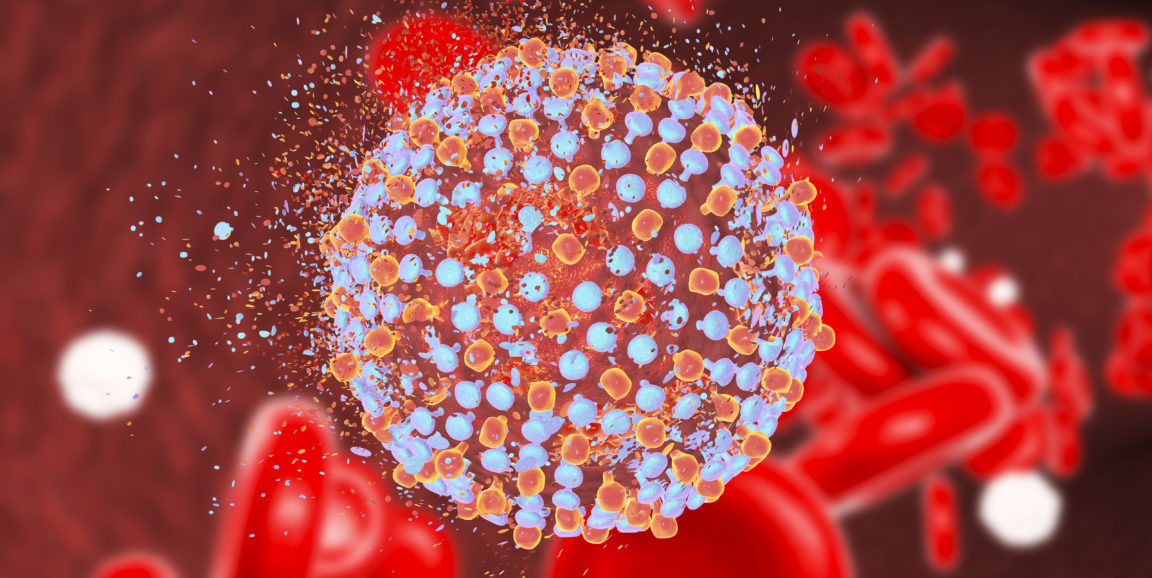The hepatitis C virus now kills more Americans than all other reportable infectious diseases combined -- including HIV. Acute cases of HCV have increased 3.5-fold over the last decade, particularly among young, white, injection drug users.
Women aged 15 to 44 have also been hit hard by the virus that is spread through contaminated blood, and the prevalence of HCV infection among women giving birth has nearly doubled.
Those staggering details were revealed earlier this week when the U.S. Preventive Services Task Force issued a draft recommendation that calls on clinicians to screen all adults 18 to 79 years old for the virus, even those with no symptoms or known liver disease.
The opioid epidemic has fueled what is now the most common chronic bloodborne pathogen, said Stanford Health Policy's Douglas Owens, MD, chair of the independent, voluntary panel of national experts in prevention and evidence-based medicine.
The Task Force, which makes recommendations followed by primary care clinicians nationwide, has until now recommended hepatitis C testing for people who are at high risk, as well as baby boomers born between 1945 and 1965.
"Unfortunately, HCV now affects a broader age range than previously with three times as many new infections per year," said Owens.
I wondered how the dramatic increase in HCV infection was impacting clinical practices, so I turned to Stanford Medicine hepatologist Amanda Cheung, MD.
Cheung said that because patients with chronic HCV typically do not have symptoms until many decades after exposure, she hasn't yet seen the downstream impact of this new wave of infection. But once those patients discover the infection, she said, "it's already started to wreak havoc on their bodies and causes development of cirrhosis, liver failure, liver cancer, or death."
Cheung said the baby boomer population is a great example.
"Until guidelines started to advise screening for patients within this birth cohort, these patients were arriving to hepatology offices worldwide with end-stage liver disease and the patients had no clue that they harbored such a high-risk infection," she told me.
Until just a few years ago, there was no universally effective treatment for hepatitis C that was well tolerated by patients, Cheung said. But the landscape has changed dramatically and clinicians are now able to successfully cure at least 95% of patients with the chronic condition with oral medications that have little or no side effects.
"With such an effective means for cure, it only makes sense to universally screen patients," Cheung said. "Implementation of universal screening will also decrease the likelihood of primary care physicians forgetting who does or does not need screening -- and it avoids the sometimes uncomfortable discussion with the patient about why they have been labeled as high risk and needing further screening."
An estimated 4.1 million people in the United States are carrying HCV antibodies; about 2.4 million are living with the virus, according to the Task Force. The HCV infection becomes chronic in 75% to 85% of cases and some of those people develop symptoms such as chronic fatigue and depression, and liver diseases that can range from cirrhosis to liver cancer.
Approximately one-third of people ages 18 to 30 who inject drugs are infected with the virus; 70% to 90% of older injection-drug users are infected.
I asked Owens why people who are not injection drug users should be worried or get tested. It's because, he said, some people are not aware of the risks -- such as a blood transfusion years ago -- and many people don't want to disclose injection drug use.
"We have evidence from modeling studies that you prevent more deaths by screening everyone than you do by picking and choosing," he told me. "It also creates stigma to screen only certain people."
We saw that play out with the HIV and risk-based screening only, which Owens called "often ineffective," and is why the Task Force recommends universal screening for HIV today.
Photo by Getty Images






